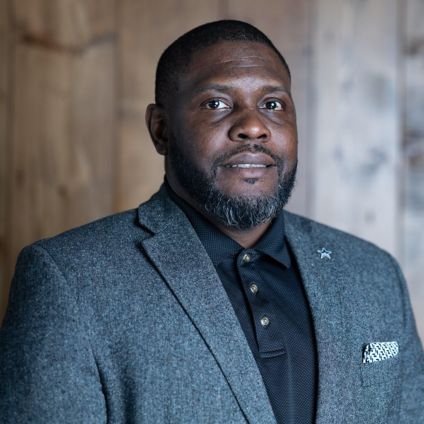Preview
Historically, the genomic and health data used to drive the development of new advanced therapeutics has been heavily based upon people of European descent. This article explores how non-diverse data and accelerated research using artificial intelligence (AI) and machine learning could dramatically accelerate existing health inequities and how a regulator and start-up in the United States are addressing this issue.
Healthcare is a social good but it is also a source of social inequity. The COVID-19 pandemic underscored long-standing equity issues between resourced and under resourced communities when it comes to health outcomes. Historically the narrative related to health equity has been framed in a Social Determinants of Health perspective. When looking to the future of health equity, I think the conversation needs to drill down to the genomic level.
Precision medicine, and the role of emerging tech such as AI and machine learning are being touted as game-changers in health and care, but my fear is that innovations in these areas will not benefit all communities and may exponentially increase health inequities. Currently the vast amounts of genomic data used to develop new drugs and vaccines and inform guidance related to health screening suffer from an extreme lack of diversity as approximately 88 percent of the genomes used are of European ancestry.1
There are concerning implications to using this “88 percent approach”. It has been well-documented through pharmacogenetic research that commonly prescribed medicines can be less effective or have different side effects in racial and ethnic groups. As AI and machine learning based applications develop at a frenetic pace and consume and use these biased genomic data sets, I worry about a vast digital divide being created that may further exacerbate health outcomes in under resourced communities. Lack of diverse data sets may also have future health recommendation implications as AI and machine learning may not factor in that racial and ethnic groups are at higher risk for some diseases, prostate cancer in Black men, comes to my mind as an example.
How, as well as whose, data is collected is also key for health equity. Research by the Partnership for Health System Sustainability and Resilience across healthcare systems in 18 jurisdictions found that, there was a lack of comprehensive and consistent data disaggregated to reveal gaps in population health along lines of gender, race, and socioeconomic and immigration status. This research emphasized the need for consistent, high-quality data collection and analysis because it is essential for planning, implementing, and evaluating population health initiatives.2

Working to close health equity gaps in research
Others share my concerns and are working to help close the health equity gaps in scientific and clinical research. In the United States in 2022, the Food and Drug Administration issued draft guidance that life sciences and medical device companies need to enroll more participants from underrepresented racial and ethnic populations into clinical trials.3
One company working to level the playing field on the data used in scientific and clinical research is IndyGeneUS AI. The start-up is working to build a large database of genomic and other health data from people of African descent. The organization aims to tackle one of the biggest barriers to the participation of African Americans in clinical research: a long-standing distrust of clinical research stemming from historic injustices such as the Tuskegee Syphilis Study and the widespread use, without permission or compensation, of the cancer cells of Henrietta Lacks in scientific research.
IndyGeneUS AI is building a platform using blockchain technology that grants participants total control over the genomic data that they share. Participants will be able to decide who can access their de-identified data, and they receive compensation when it is selected by researchers and medical professionals for research or clinical trials. In other words, the platform has turned data donors into data owners.
Already, IndyGeneUS AI has entered into partnerships with researchers in South Africa, Nigeria, Ghana and the U.S. The organization aims to sequence up to two million genomes of indigenous and diaspora Africans. It is also working on sequencing the genomes of women affected by endometriosis, polycystic ovary syndrome and uterine fibroids – another underrepresented group in medical research – with the aim of better understanding the genetics of these often-interlinked conditions.


Now is the time to determine what data will be used to train the algorithms and artificial intelligence that will help design the treatments and health policies of the future.

Yusuf N. Henriques
Founder and chief executive officer of IndyGeneUS AI
The start-up is also working to address another barrier to broad participation in medical research, a mismatch between clinical trial sites and underserved populations. IndyGeneUS AI has situated its two laboratories in diverse neighborhoods in Washington D.C. and Cape Town, South Africa. As it grows, the organization intends to continue choosing sites in diverse urban centers. At KPMG in the U.S., we are helping this up-and-coming innovative and diverse start-up on a pro bono basis because we feel IndyGeneUS AI has the potential to drive meaningful industry change.
I feel that now is also the time for life sciences, healthcare and other organizations to be intentional about changing research models and doing their part to build research capacity in under resourced communities. As Mr. Henriques points out “Health equity issues can become a thing of the past with more diverse data repositories and by leveraging next generation genomic sequencing, along with AI and machine learning. These enhanced tools can be trained to sift through millions of genomic data points to identify unique gene targets at the population or sub population level.” Failing to grasp these opportunities may drastically exacerbate existing health inequalities, creating a world of healthcare haves and have-nots. But getting it right could set healthcare on a much fairer trajectory for the future.
Grasping these opportunities could set healthcare on a much fairer trajectory for the future. Globally, health equity continues to be a topic of interest among healthcare leaders. Given that the topic is daunting to take on, it can be easy for leaders to become a little overwhelmed. Flexible and dynamic approaches are needed to respond to these challenges. KPMG can meet organizations where they are at in their health equity journeys and work collaboratively to deploy market-tested approaches to transform ideas into meaningful action.
Key takeaways and action points
- Genomics, AI and machine learning are ushering in a golden age of precision medicine, but the data used to drive research is heavily skewed towards genomes of European descent. To prevent further exacerbation of existing health inequalities, life sciences and healthcare organizations should take steps to address bias in the data.
- Addressing long-standing issues related to health inequity and distrust in under resourced communities, starts with collaborating with these communities. Life sciences and healthcare organizations should take a holistic approach through which they learn, design and act with community stakeholders in order to create meaningful actions and sustainable results.
How KPMG can help
1 Mills, M.C., Rahal, C. A scientometric review of genome-wide association studies. Communications Biology, 2, 9 (2019). https://doi.org/10.1038/s42003-018-0261-x
2 Partnership for Health System Sustainability and Resilience. (2023). Key findings from country reports: Building sustainable and resilient healthcare systems. https://www3.weforum.org/docs/WEF_PHSSR_Building_Sustainable_and_Resilient_Health_Systems_2023.pdf U.S.
3 Food and Drug Administration. (2022 April 13). FDA takes important steps to increase racial and ethnic diversity in clinical trials. News release. https://www.fda.gov/news-events/press-announcements/fda-takes-important-steps-increase-racial-and-ethnic-diversity-clinical-trials




